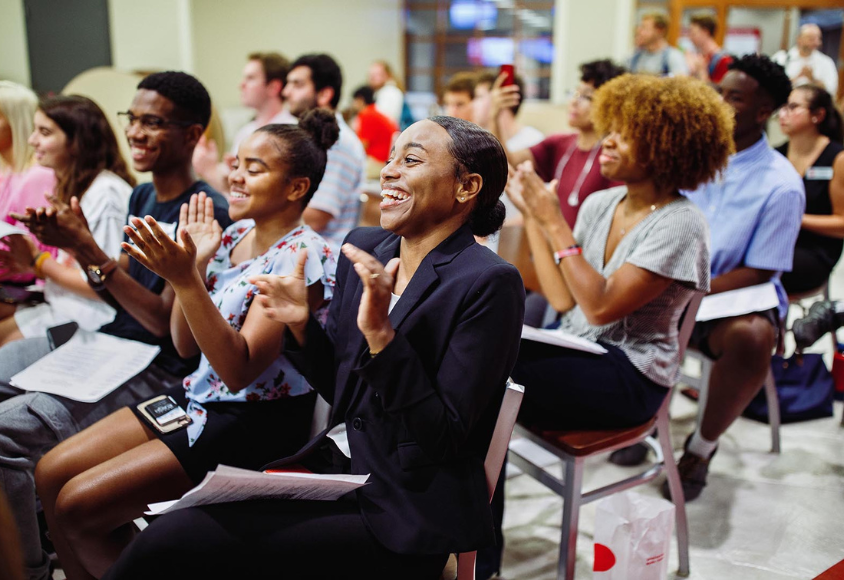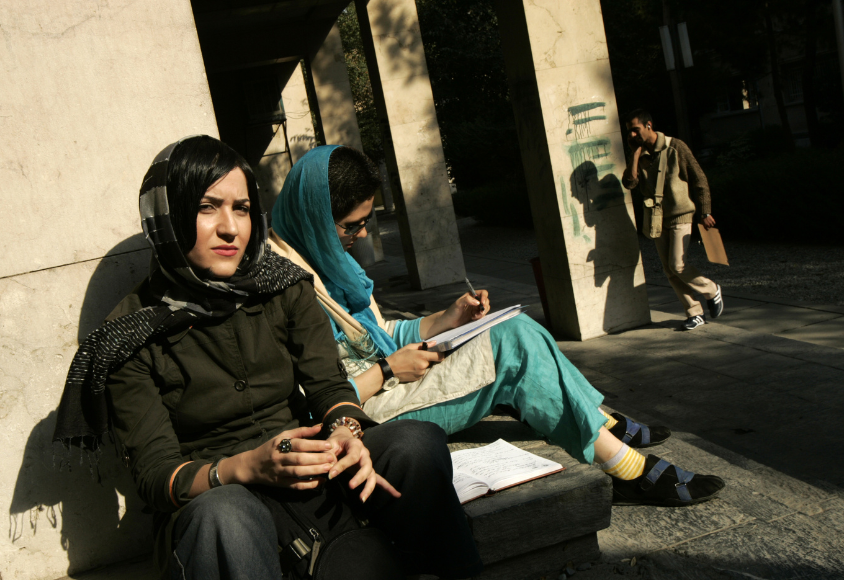Listen to the essay here:
Author: Ilyas Saliba
Academic freedom is in decline worldwide. Here are six ways students, scholars, university administrators and willing governments can speak up for freedoms of research and teaching now – before it is too late.
Academic freedom is under threat across the globe. Freedoms of research and teaching are increasingly being curtailed. Students and scholars in online seminars and on campuses are becoming victims of surveillance. Despite general internationalisation trends in higher education and research, international exchange between scholars and students is increasingly being regulated and at times even restricted (Nagy et al. 2019).
Authoritarian governments in particular (but not exclusively) regularly scrutinise the cooperation and exchange between scholars in conferences and joint research projects or through formal procedures such as security clearances and visa regulations. Censorship (including self-censorship) in academia is rising and is limiting research opportunities as a result. At the legal and institutional levels, the autonomy of universities is being eroded through politically appointed rectors and funding structures that undermine university autonomy and democratic self-governance (Roberts Lyer/Suba 2019). In addition, the privatisation and commodification of higher education is reinforcing existing inequalities in access to tertiary education and the reputation of higher education institutions (Kinzelbach et al. 2021). Scholars conducting fieldwork have had to adjust their research agenda and methods of data collection (if possible) in order to continue their research despite the travel restrictions imposed by the COVID-19 pandemic (Saliba 2021). By and large, these problematic trends have been observed in many higher education systems around the globe. The Academic Freedom Index shows that academic freedom has – in terms of the global average – been slowly declining for the past ten years (Kinzelbach/Quinn et al. 2021).
The pandemic and Russia’s war against Ukraine as accelerators
Initial evidence suggests that the pandemic is likely to have accelerated some of these worrisome trends. First, by switching teaching and conferences to online formats, digital surveillance has penetrated teaching and academic exchange more deeply. Second, pandemic-related travel restrictions have been seized upon by governments and university administrations to deny researchers access to fieldwork sites or to prevent scholars and students from participating in conferences and international exchange programmes. Third, Vladimir Putin’s war against Ukraine has brought cooperation with Russian scientists to an abrupt halt (The Economist 2022). Fourth, public underfunding of universities and market-oriented reforms of higher education systems have increased access inequality to tertiary education, politicised university leaderships and marginalised some disciplines, while prioritising others that seemingly generate more value for the economy (through graduates, developments or findings). This trend is likely only to strengthen in the future, given the more austere policies that can be expected in the upcoming years because of the increased public spending during the pandemic.
What can we do to counter these trends?
There are at least six ways in which we can stand up for academic freedom and help to turn the tide against the global trends identified above.
First, rankings and quality assurance processes need to include academic freedom as part of their quality and reputation assessments (Kinzelbach et al. 2021). Indeed, some of the most reputable universities in the world operate in environments where intellectual and academic freedoms are severely restricted. Scientific inquiry and the production of knowledge are inhibited if professors and students risk sacking, expulsion or even worse repercussions for discussing topics that are deemed off limits or for asking and discussing controversial questions. None of the main university ranking systems acknowledges the central role of academic freedom in top quality teaching and research. It is time for universities, scholars and students to hold ranking and quality assurance companies accountable and to push for the inclusion of academic freedom in their assessments, creating incentives for governments and universities to respect and not curtail academic freedom.
Second, international scientific cooperation and exchange is vital to academic freedom, which is why restrictions on cooperations and exchanges should be minimal. At the same time, it is important to acknowledge that institutional cooperation agreements in particular may also harbour risks for academic freedom even in relatively free environments. Governments, university administrators and scholars have to be aware of potential risks – such as through independent periodical risk assessments – in order to identify and mitigate these effectively. Universities, governments and scholarly organisations (such as discipline-related associations and unions) should build networks to protect academic freedom and foster debates about associated issues to increase awareness across university management, scholars and students.
Third, with more refugees recorded than in any previous period, more funding should go into programmes for at-risk scholars and students to accommodate displaced researchers and students and provide them with the opportunity to continue their research or studies in host countries. Assisting at-risk scholars and students and their voices may also help to generate knowledge about academic freedom and its limitations and to document and increase public awareness of issues of academic freedom.
Fourth, universities and governments should develop inhouse capacities and capabilities to detect and monitor changes to higher education systems in relation to their consequences for academic freedom. Such analyses can inform decisions about international partnerships and potential risks through extraterritorial restrictions, such as censorship (including self-censorship).
Fifth, fieldwork needs to be facilitated and safeguarded, not overregulated or restricted. Scholars who rely on fieldwork require greater flexibility and more support. Data gained through regular fieldwork informs political debate and decision-making. Thus, the growth of restrictive policies on fieldwork missions for liability reasons is a highly problematic development that has consequences beyond the generation of scientific knowledge. For this reason, instead of limiting field research, supervisors, universities and funders should provide their research staff with the necessary training and resources to adjust their projects to the situation on the ground whenever possible.
Sixth, scholars, students (and their unions) and universities need to lobby relevant local, regional, national and international regulatory institutions and funding bodies to improve legal safeguards for academic freedom and university autonomy (including democratic self-governance) in constitutions, laws, regulations and international (cooperation) agreements.
If students, scholars, university administrators and willing governments want to turn the tide on academic freedom they should act now, or it might be too late.
Ilyas Saliba (@ilyas_saliba), is Non-Resident Fellow at the Global Public Policy Institute (GPPi) in Berlin.
Bibliography
The Economist (2022): Russian and Western scientists no longer collaborate in the Arctic, https://www.economist.com/science-and-technology/russian-and-western-scientists-no-longer-collaborate-in-the-arctic/21809236.
Kinzelbach, K./Saliba, I./Spannagel, J. (2021): Global data on the freedom indispensable for scientific research: towards a reconciliation of academic reputation and academic freedom, The International Journal of Human Rights (online first).
Kinzelbach, K./Saliba, I./Spannagel, J./Quinn, R. (2021): Free universities: putting the academic freedom index into action, Global Public Policy Institute, https://www.gppi.net/2021/03/11/free-universities.
Nagy, M./Salam, M. A. (2019): Pending security clearance travel restrictions on faculty members, Association for Freedom of Thought and Expression, https://afteegypt.org/en/research-en/research-papers-en/2019/06/19/17876-afteegypt.html.
Roberts Lyer, K./Suba, A. (2019): Closing academic space: repressive state practices in legislative, regulatory and other restrictions on higher education institutions, International Center for Not-for-Profit Law, https://www.icnl.org/wp-content/uploads/Uni-restrictions-rpt-final-March-2019.pdf.
Saliba, I. (2021): Covid-19: field research needs to find a way back fast after the pandemic, The Conversation, https://theconversation.com/covid-19-field-research-needs-to-find-a-way-back-fast-after-the-pandemic-160060.



